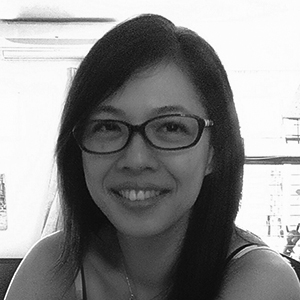The mood on Wednesday night at Singapore’s Bedok Stadium was electrifying, at least by the standards of a usually subdued and sterile Singapore.
Tens of thousands of people, some of them old and some with young children in tow, had packed into the open-air stadium to listen to the leaders of the opposition Worker’s Party on the last night of electoral campaigning.
The crop of multi-lingual speakers were articulate, if not a little awkward, and the crowd cheered in robust support as each leader tried to convince Singaporeans to vote in a stronger opposition voice in Parliament.
It’s not a scene most people will usually associate with Singapore, whose government is notoriously adept at punishing its critics.
“It’s the one time in four years there’s no ‘cheng hoo’ (government, in Hokkien),” said a rally-goer Kenneth, referring to the dissolution of Parliament on September 1.
“You can call out the government’s faults without having to fear repercussions,” he said, as the crowd around us continued their chorus of support for the speakers.
But as the results of the tiny nation’s 17th general elections showed early Saturday, fear continues to play a big role in the minds of Singaporeans.
Analysts have said that inspite of Singapore’s 50-year history of being a nation, real political discourse only surfaced after the 2011 general elections, when the opposition won 7 seats and an unprecedented 40% of the popular vote.
“Politics only really came alive in 2011,” said political analyst Ooi Kee Beng from Singapore’s Yusof Ishak Institute.
The biggest number of opposition representation in Parliament in the past four years caught the imagination of those who have been critical of the People's Action Party’s near-total dominance, leading to analysts and punters alike hedging their bets on an even bigger opposition win this year.
However, the results of last Friday’s polls show that the move towards greater political discourse has taken a step back, in favour of a decades-old track record of unilateral employment of pragmatic policies.
Some attribute the unexpected swing back to the PAP as a result of the nation’s recent feel-good 50th anniversary celebrations, while others point fingers to the ineptness of a fragmented and inexperienced opposition that failed to impress voters.
No doubt, both factors played a role in the election results, but it is clear that the underlying winning factor for PAP was fear.
For Jane Tan, a member of Singapore’s “pioneer” generation, the memory of the early years of post-independence Singapore will always bear heavily on her mind when it comes to voting.
“We were really afraid that this country would not make it,” she told me over coffee the morning of polling day.
“In fact, I held on to my Malaysian citizenship for a full 15 years, fearing there might come a day when Singapore would fail, and I would have to take my family over to Malaysia instead.”
Even if they may not admit it, many Singaporeans believe the country is truly vulnerable, and in spite of all its glitz and glamour, the nation could easily spiral down from its dizzying heights if not for a continuation of pragmatic policies enforced by a strong PAP.
There is a fear that if the government is not one that is strong, united and unrelenting, the country of only 5.4 million people will be easily intimidated by its larger and hostile neighbours.
And, of course, there remains the constant fear that should the straight-laced, corrupt-free government of the past 50 years be compromised, they could one day become like their closest neighbour, Malaysia.
While its leaders have been largely subtle in making comparisons between the two nations, the fact is that Singapore need not look far to see examples of what could happen to a nation full of potential when placed under the hands of a corrupt and broken government.
“The message is often clear when Singaporean leaders refer to Malaysia. ‘If you’re not careful, this could happen to us,” said political analyst Eugene Tan from Singapore’s Management University.
“Malaysia provides a very useful contrast, a platform to show Singaporeans what could have happened, and therefore we should not take what we have for granted,” he said.
And as the election results showed, Singaporeans are certainly not taking their success for granted.
As the dust settles on a hotly contested election across the border, Singaporeans will get back to work today with the comforting knowledge that their tried-and-tested, PAP-dominant system will provide them at least one predictable constant in an increasingly hostile environment.
But voters will have to assess if the performance and policies of the government in the next five years are worth trading off greater political debate and diversity. – September 14, 2015.
* This is the personal opinion of the writer or publication and does not necessarily represent the views of The Malaysian Insider.


Comments
Please refrain from nicknames or comments of a racist, sexist, personal, vulgar or derogatory nature, or you may risk being blocked from commenting in our website. We encourage commenters to use their real names as their username. As comments are moderated, they may not appear immediately or even on the same day you posted them. We also reserve the right to delete off-topic comments